Holy headlines, Batman! Have you heard the Bat-news? Christian Bale has said he would play Batman/Bruce Wayne once again for Christopher Nolan should the auteur behind the massively successful Dark Knight trilogy be interested in making a fourth film. Bale recently told Screen Rant: “In my mind, it would be something if Nolan ever said to himself, ‘You know what, I’ve got another story to tell.’ And if he wished to tell that story with me, I’d be in.”
This is big news for fans of the franchise, of which there are many. The three films — Batman Begins (2005), The Dark Knight (2008), and The Dark Knight Rises (2012) — grossed almost $2.5 billion dollars at the global box office, and they were critically acclaimed as well. So many people believed that The Dark Knight was robbed of a Best Picture Oscar nomination that the Motion Picture Academy expanded the number of Best Picture nominees to prevent such omissions from occurring in the future – likely paving the way for the Best Picture nominations awarded to Black Panther and Joker.
Bale’s admission lends itself to two natural questions. What would a new Christopher Nolan Batman movie look like? And would audiences be interested after the directions the Batman franchise has gone in the last decade? Given the opportunity, should this version of the Dark Knight rise again?
What would a new Dark Knight film look like?

The first question in considering a fourth film is where could the filmmakers go from the material established in the trilogy? Even if a new film was announced in, say, the next few months, it would be at least two, and more likely three or four years, before anything hit the screen. Three years elapsed between Batman Begins and The Dark Knight, and four years went by between The Dark Knight and The Dark Knight Rises. Granted, Nolan made other films within that period (The Prestige and Inception), which perhaps delayed a more timely release of his Batman movies. But even if he hadn’t, making blockbusters on this scale is time-consuming, and Nolan’s Dark Knight movies were epic undertakings (he compared making The Dark Knight Rises to D.W. Griffith’s massive 1916 epic Intolerance, one of the most enormous productions ever mounted in terms of scale and scope).
Nolan is currently in postproduction on his next directorial effort, Oppenheimer (starring Cillian Murphy, alongside a huge all-star cast, as the man who invented the atomic bomb) and IMDB currently lists no other upcoming directorial projects for him. So let’s say that Nolan announced he was writing a fourth Dark Knight film in the fall of 2022 — presumably with his brother, Jonathan Nolan, who co-wrote the the last two films — and it was going in front of the cameras in the fall of 2023, to be released in summer 2025, probably the absolutely earliest it could happen. That would be 13 years since the last one. Where do you go with this story and these characters after 13 years?
Is Batman even alive in this universe?
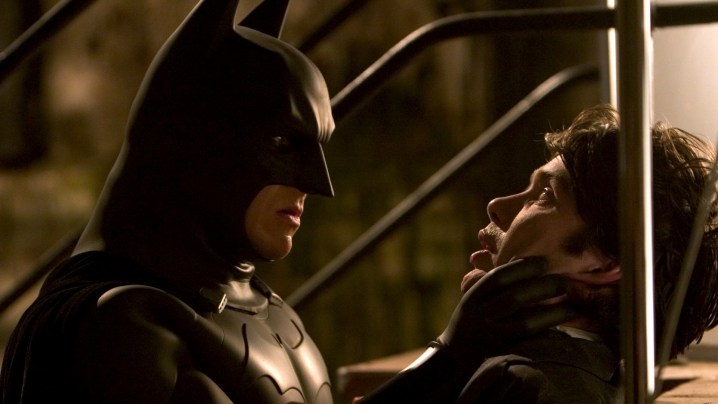
Consider where we were at the conclusion of The Dark Knight Rises in 2012. Batman had narrowly saved Gotham City from Bane (Tom Hardy), Talia al Ghul (Marion Cotillard), and The League of Shadows, who occupied it for months, cut it off from the outside world, wrecked much of its functioning infrastructure, and then almost blew it up with an atomic bomb. Batman flew the bomb away from the city, exploding it over the ocean at the very last second, whereupon he somehow did not perish instantaneously and took an Italian holiday with Selina Kyle (Anne Hathaway). There, as Bruce Wayne, he said a final goodbye to his faithful butler, Alfred (Michael Caine), and let the world presume him dead.
But was he dead or not? The evidence on screen seems to point the former, as there was no time to fly the nuke out over the water and extricate himself from the blast radius, established earlier in the film as six miles. Seconds before the bomb went off, he is seen inside the craft piloting it, though, granted, it is a tight medium shot without any establishing context. Some have presumed that Nolan is playing with time here, that the shot of Batman and the shot of the nuke exploding seconds later don’t actually happen linearly.
Though this seems like a massive cheat given all that’s come before, it certainly wouldn’t be out of character for Nolan to arrange some events non-chronologically, as he does in, well, almost all of his films. In that case, Bruce Wayne is alive and it’s not all just a fantasy of Alfred’s, one he has already confessed to having earlier in the film. For his part, Bale believes that Bruce and Selina are alive and well (presumably enjoying a Aperol Spritz in some Florentine piazza), but he concedes that the question remains open for interpretation.
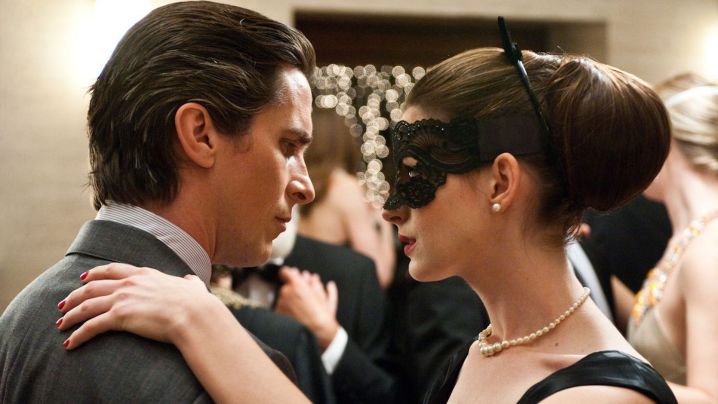
Not that it matters. The condition of a character at the end of a film or even an entire franchise obviously makes no difference to that character’s appearance in future episodes (just ask the makers of James Bond after No Time to Die and, for that matter, Skyfall as they scour the earth for Daniel Craig’s replacement). Franchises resurrect characters all the time on the flimsiest of pretenses. Nor is the age of the character or the actor necessarily a consideration. Bale would only be 50 if a new Dark Knight film started shooting in the next few years. Robert Downey Jr. was in his early 50s when he played Tony Stark in the final two Avengers movies.
Anyway, Batman/Bruce Wayne has a history of being all different ages in various stories. In Frank Miller’s seminal graphic novel The Dark Knight Returns, so influential in ushering the dark, violent Batman ethos that predominates today, the character was 55. Michael Keaton, who played Batman in the Tim Burton films, will be back as the character in The Flash next year (assuming the film gets released, given the controversy surrounding its star, Ezra Miller), and he’s 70. Keaton’s return is also one more example of how “multiverse” storytelling allows multiple versions of one character across different timelines, allowing for a way that a new Dark Knight movie could exist in the same release schedule as the rebooted Robert Pattinson-starring Batman movies.
Which actors and characters might return?
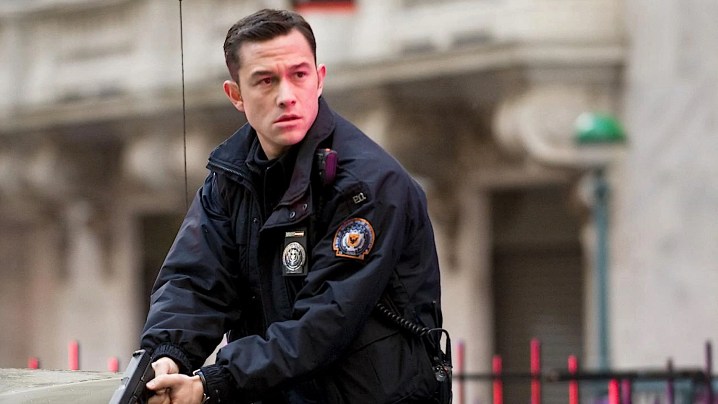
So if Bale is raring to go as Bats, where does that leave the other major actors/characters? Bruce had a falling out with Alfred in The Dark Knight Rises, so should Michael Caine actually retire, as he has adamantly denied, it won’t be an issue — as hard as it is imagine Bruce negotiating both work and personal life without his dedicated manservant. Other major names could still conceivably play their former characters: Anne Hathaway as Selina, Gary Oldman as Commissioner Gordon, Morgan Freeman as Lucius Fox (who runs the Wayne Foundation), and Cillian Murphy (who, as the Scarecrow, was in both Batman Begins and TDKR).
Another intriguing possibility would be the return of Joseph Gordon-Levitt as detective John Blake, whose first name is revealed as “Robin” at the end The Dark Knight Rises. The movie actually ends with Blake quitting the Gotham City Police Department, then discovering the Batcave, as though he might inherit the cape and cowl, either as Robin, a new Batman, or perhaps another DC character such as Nightwing. That movie never happened for various reasons, including the fact that Warner Brothers pivoted to DCEU movies so soon after Nolan stepped away, but featuring his character in a fourth film would be an obvious starting point.
One character that would be unlikely to return in a fourth Dark Knight film would be the Joker, played indelibly by the late Heath Ledger, who won a posthumous Oscar for his turn as the Clown Prince in The Dark Knight. Ledger’s performance has become so legendary that a new actor in the role would be doomed from the start, forever coming up short in comparison to the point of distraction. Fans would be unlikely to welcome a new Joker opposite Bale’s Batman, with the possible exception of Joaquin Phoenix, who also won an Oscar for playing the character in Joker.
Phoenix’s older Joker (the actor is 47) also makes sense pitted against Bale’s Batman, though I’m sure you can file the whole idea somewhere between Fat Chance and What Are You Smoking? Finally, the final Arkham Asylum scene from The Batman seems to suggest that the Joker (perhaps played by Barry Keoghan) will feature in the recently announced sequel to Matt Reeves’ film The Batman, even though Reeves has said this isn’t the plan for now. Either way, a fourth Dark Knight film would likely need to pivot to another villain.
How could Nolan make the film contemporary?

So where, then, would it pivot? Who could Batman square off against that would resonate in the mid-2020s? One of the problems with comic book movies, especially those set in urban milieus like Batman and Spider-Man, is that they’ve had a hard time escaping the 1970s when it comes to the plights affecting America. Yes, street crime used to be a big problem, along with urban decay and the Mob, but we’re struggling with much different and frankly bigger problems now.
The Batman nods toward this at its (spoiler) conclusion when fanatical white dudes with assault rifles threaten a public gathering. But for most of its three-hour runtime, the movie squarely embraces its 1970s ethos, with urban decay, street crime, and organized crime presented as the major threats to Gotham’s well-being, as opposed to, say, the skyrocketing rents and gentrification that have threatened real 21st century cities.
The idea of the Riddler (Paul Dano) radicalizing his followers on social media is very contemporary, but why not organize the whole movie around it? Yes, that question is purely rhetorical. Especially given that the Batman brand has fallen behind the MCU over the last decade both at the domestic and the global box office, Warner Bros. is unlikely to lean into more overt politicization.
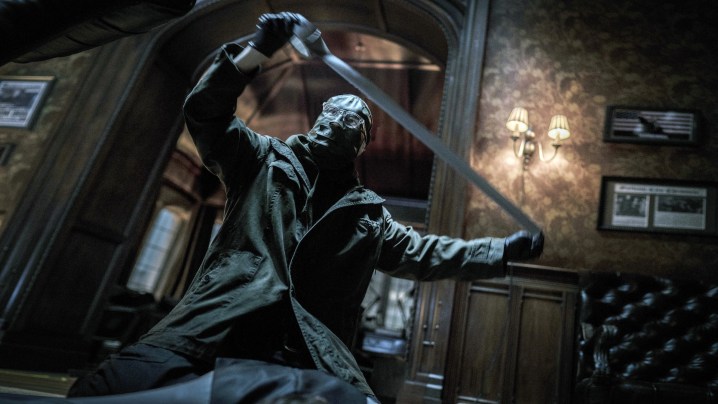
And yet, Nolan’s Batman movies did attempt to engage contemporary issues, both in The Dark Knight, which questions Batman’s extra-legal use of torture and domestic wiretapping, and in The Dark Knight Rises, in which Bane wants to topple the Gotham Stock Exchange. Here, Nolan takes aim at the 1 percent and presents clueless rich people as being responsible for much of the decline of society. (When Bane crashes the stock exchange, some stuffed shirt condescendingly says, “There’s no money here to steal,” and Bane responds, “Really, then why are you people here?”)
The problem with both TDK and TDKR is that Nolan is so ambitious in his storytelling, cramming in so many characters and subplots, that the social criticism is given short shrift. Both films might be better off as six- or 10-hour seasons of television, a not-implausible scenario in today’s IP storytelling landscape. Although then they wouldn’t get feature film budgets, and the buckets of money lavished on these movies is part of why they are so fantastic. The Dark Knight Rises especially contains some of the most beautiful cinematography you’ll ever see. You’re not getting that on the budget of Obi-Wan Kenobi.
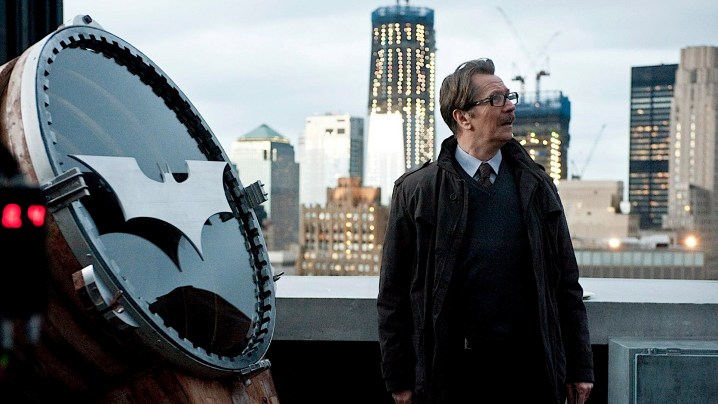
Between the The Batman, the DCEU (with Ben Affleck playing the Caped Crusader in several movies), and even the Lego Batman movies, not to mention all the television content, Batman has yielded a great deal of material just in the decade since Nolan’s movies concluded. Given the multiplicity of multiverses in today’s franchise entertainment, as well as the great love for Nolan’s films, fans probably would embrace a fourth entry, even if it was released during Reeves’ (so far well-received) series.
But could it be special in this diluted environment? Could it find the right story, the right cast, the right villain, the right raison d’être, and would Warner’s fund it as it did its predecessors, to give it epic scope on the biggest screens? If not, Batman is probably better off continuing in a new direction, hopefully one that strives to keep him relevant.



